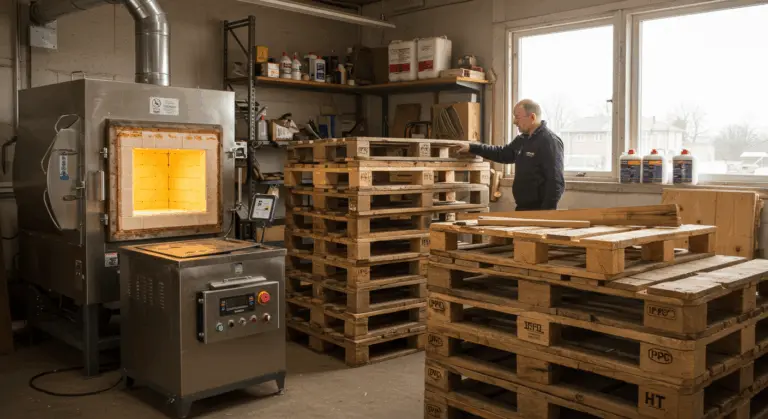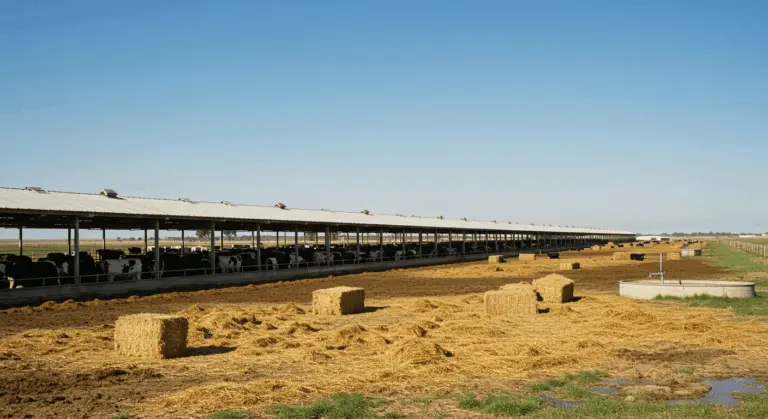Famous Environmental Quotes – Words to Inspire
Throughout history, visionaries, activists, and leaders have distilled the essence of our relationship with nature into powerful, memorable words. These environmental quotes do more than inspire—they serve as urgent reminders of our collective responsibility to safeguard the planet for generations yet to come.
Renowned architect Frank Lloyd Wright once observed, “Study nature, love nature, stay close to nature. It will never fail you.” This wisdom draws us to the natural world as our greatest teacher and muse. Wright’s philosophy reveals a fundamental truth: our bond with nature transcends mere benefit—it’s fundamental to our wellbeing and creative spirit.
Community action finds expression in Wendell Berry’s understanding that we all share one planet. This sentiment echoes through grassroots environmental initiatives worldwide, where neighbors work together to create real change. Consider the tree-planting events that breathe new life into neighborhoods. Think of community gardens that nourish families while nurturing the earth. These efforts show us something important: environmental stewardship naturally brings people together.
In Bhutan—a nation that has made conservation a national priority—local communities embody this collaborative spirit with remarkable dedication. Villagers unite in protecting biodiversity hotspots, weaving wildlife corridors through the landscape and nurturing native trees back to life. As one community leader eloquently expressed, “This isn’t just about animals. It’s about preserving our home and our culture for future generations.” His words capture something essential: environmental protection weaves together personal conviction and collective responsibility into a single, powerful tapestry.
These quotes go beyond inspiration—they call us to act. When we truly absorb these words, they ignite something within us, motivating conscious choices and drawing us into the global movement to protect our shared home.
Quotes by Environmental Activists – Voices for Change
Environmental activists have been at the forefront of planetary protection, using their voices to drive change and community mobilization. Their words bear the accumulated weight of hard-won experience and unwavering conviction. They serve as catalysts that spark environmental action across continents.
Dr. Jane Goodall, the legendary climatologist whose work revolutionized our understanding of the natural world, offers this profound insight: “One individual cannot possibly make a difference, alone. It is individual efforts, collectively, that makes a noticeable difference—all the difference in the world!” This view helps us move past feeling overwhelmed by environmental challenges, revealing how our combined efforts create ripples that become waves of meaningful change.
Real-world examples show this principle in action. Picture an entrepreneur who channels her passion for fashion into a sustainable clothing line. Driven by a fierce determination to counter fast fashion’s environmental devastation, her initiative has reshaped both industry practices and consumer consciousness. Her story demonstrates how personal conviction can ignite transformation that spreads far beyond its origins.
Visionary architect and environmentalist Richard Rogers highlights another important aspect of environmental activism: “The only way forward, if we are going to improve the quality of the environment, is to get everybody involved.” His words capture an essential point: environmental protection demands participation from every corner of society. Meaningful progress emerges only through inclusive engagement and an unwavering shared commitment to our sustainable future.
Quotes on Climate Change – A Call to Action
Climate change is perhaps the most urgent environmental challenge of our era, demanding immediate and decisive action. Advocates for climate justice offer both stark warnings and hopeful rallying cries that can galvanize us to confront this global crisis head-on.
Academy Award-winning actor and passionate environmental advocate Leonardo DiCaprio captures the urgency of our situation: “Our planet’s alarm is going off, and it is time to wake up and take action!” This metaphor makes climate change’s seriousness crystal clear, urging us to heed Earth’s distress signals before we pass the point of no return.
Few voices have energized the climate movement like Greta Thunberg. This young activist’s words slice through political rhetoric with laser-like clarity and uncompromising moral conviction: “We deserve a safe future. And we demand a safe future. Is that really too much to ask? … Right now we are the ones who are making a difference. If no one else will take action then we will… It should not be that way. We should not be the ones who are fighting for the future. And yet, here we are.” Her perspective exposes the profound intergenerational injustice of climate inaction while placing responsibility squarely on the shoulders of decision-makers who have failed to rise to this defining challenge.
Effective climate solutions require unprecedented collaboration across all sectors of society. This principle recognizes that “To make the changes we need to make and to reach a safer future, we will need the resources of everybody here — the scientists, the policymakers, and the industrialists — all working together towards a common goal. And that goal is a planet that can continue to support life.” This inclusive vision acknowledges that meaningful climate action requires expertise and unwavering commitment from every corner of our interconnected world.
Author Andrea Kohl Jones connects environmental protection with our responsibility to future generations in this compelling observation: “Just as we can’t wait to take action to protect nature, we can’t wait to protect our children’s future.” This speaks to our deepest human instinct: the fierce drive to protect those who will inherit the world we leave behind.
U.S. Representative Jackie Stair offers this practical perspective: “Every day is Earth Day, and I vote we start investing in a secure climate future right now.” Her words remind us: environmental protection isn’t an annual observance but a daily commitment demanding consistent investment. The underlying message is clear—every day we delay climate action, we compound tomorrow’s challenges.
Nature Quotes – Celebrating Our Planet
Our profound connection to the natural world has sparked countless expressions of wonder, reverence, and responsibility throughout human history. These nature quotes capture the very essence of our relationship with Earth while reminding us of the beautifully simple yet transformative actions we can take to protect it.
-
“Earth Loves You, Love it Back”: This simple phrase captures the reciprocity between humanity and our planet, transforming environmental stewardship into a profound act of love.
-
“Say no to Single Use” & “Reduce, Reuse, Recycle”: These enduring mantras offer clear guidance for shrinking our ecological footprint, challenging us to abandon our throwaway culture for something more sustainable.
-
“May the Forest be With You”: This playful twist on a beloved pop culture phrase highlights forests’ vital role as our planet’s breathing apparatus.
-
“Save the Bees and Plant Trees”: This catchy rallying cry tackles two environmental imperatives simultaneously—safeguarding the pollinators that sustain our food systems while reforesting to combat climate change.
-
“Join the Race to Make the World a Better Place”: This call turns environmental action into an inspiring collective challenge, radiating hope and celebrating our potential for unified impact.
Quotes from Historical Figures – Wisdom Through Time
Environmental consciousness isn’t just a modern development—it’s a thread that weaves through human history. Visionary leaders and thinkers across the ages have recognized humanity’s profound responsibility toward the natural world. Their words carry timeless wisdom that continues to illuminate our environmental path today.
President Franklin D. Roosevelt gave one of history’s most insightful environmental warnings: “A nation that destroys its soils destroys itself.” This profound observation, shaped by the Dust Bowl era, reveals Roosevelt’s deep understanding that environmental and national well-being are inextricably intertwined. His words remain strikingly relevant as we grapple with today’s challenges of soil degradation and agricultural sustainability.
Religious leaders have contributed their own insights to environmental wisdom. Pope John Paul II emphasized that “The Earth will not continue to offer its harvest, except with faithful stewardship,” elevating environmental care from practical necessity to moral imperative. This perspective transforms conservation into a sacred trust—our moral obligation to preserve Earth’s abundance for those who will follow in our footsteps.
These historical voices remind us that environmental awareness runs deep in human consciousness. While our scientific understanding has expanded dramatically, the fundamental wisdom about our relationship with nature remains timelessly relevant. Revisiting these perspectives provides invaluable context for our modern environmental movement, revealing that caring for our planet has always been essential to human flourishing.
Quotes on Environmental Justice – Equity in Nature
Environmental justice occupies the crucial intersection where social equity meets ecological preservation. This movement recognizes a harsh reality: environmental challenges don’t affect all communities equally—they disproportionately burden the marginalized. Powerful quotes from those fighting on these frontline capture this critical perspective with striking clarity.
Jerome Foster II, a dynamic young climate activist and White House advisor, expresses this connection clearly: “Climate crisis and social injustice are inextricably linked.” His words reveal an important truth: we cannot heal our planet without healing social inequities. He calls for systems that place human and environmental wellbeing above profit margins.
Environmental justice advocates consistently reveal a harsh reality: pollution, resource extraction, and climate impacts follow the fault lines of social inequality. Robert Bullard, widely recognized as the father of environmental justice, expressed this principle clearly: “Environmental justice embraces the principle that all people and communities have a right to equal protection and equal enforcement of environmental laws and regulations.” This foundational principle demands that environmental protection ensure fairness in distributing both burdens and benefits across all communities.
These quotes serve as powerful reminders that truly sustainable solutions must embrace inclusivity at their core. They cannot address environmental degradation while ignoring the needs and rights of communities bearing the heaviest ecological burdens. The environmental justice movement teaches us a profound lesson: protecting nature and advancing social equity aren’t separate goals but deeply intertwined imperatives that must be pursued as one unified mission.
Motivational Quotes – Inspiring Action for the Earth
Sometimes the most powerful catalyst for environmental action emerges from words that awaken us to our extraordinary potential for positive change. These motivational environmental quotes serve as daily reminders that each person possesses the ability to create meaningful impact. They transform overwhelming global challenges into achievable personal missions.
Dr. Jane Goodall’s wisdom expresses this truth clearly: “You cannot get through a single day without having an impact on the world around you. What you do makes a difference, and you have to decide what kind of difference you want to make.” This statement removes all illusions: our environmental impact is inevitable. The only choice we truly have is whether that impact heals or harms.
We see this in countless real-world actions. Consider the entrepreneur who replaces plastic packaging with biodegradable alternatives. Think of the student who successfully campaigns for solar panels at their school. These aren’t grand gestures—they’re purposeful choices that ripple outward.
These examples show what Nobel laureate Hangar Martha understood when she declared, “It’s the little things citizens do that will make a difference. My little thing is planting trees.” Her deceptively simple act of tree planting blossomed into the Green Belt Movement, ultimately transforming landscapes and empowering communities across Kenya.
Motivational environmental quotes serve as daily guides, guiding us toward sustainable change that often begins with individual conviction. They challenge us to examine our daily choices with fresh eyes, recognizing how seemingly small decisions—like refusing single-use plastics—contribute to the larger tapestry of environmental stewardship.
Quotes for Environmental Awareness – Spreading the Message
Environmental awareness quotes serve as powerful tools for education and advocacy, creating ripple effects that extend far beyond their initial reach. When shared across social media platforms, displayed prominently in classrooms, or woven into community campaigns, these concise messages can touch audiences who might otherwise remain disconnected from environmental concerns.
Quotes focusing on stewardship or daily impact act as gentle but persistent reminders of our fundamental responsibilities. These messages speak directly to our universal need to protect natural resources while confronting us with the reality of our environmental choices. They cut through complexity to reveal simple truths.
These quotes prove most effective when paired with tangible actions. Picture a teacher using a weekly environmental quote to spark classroom initiatives. Imagine an influencer combining these messages with stunning nature photography to reach broader audiences. The combination of inspiration and action creates lasting impact.
Environmental quotes work as perfect gateways to deeper conversations about our planet’s future. When we share Rachel Carson’s profound observation that “In nature, nothing exists alone,” we invite others to contemplate the intricate web of ecosystem connections and our collective responsibility as guardians.
By sharing these messages of stewardship, we participate in a gradual but powerful shift in public consciousness toward greater ecological awareness. Each quote acts as a seed of possibility, planted in minds ready for meaningful action.
Quotes on Sustainability – A Path Forward
Sustainability quotes show pathways to a viable future for both humanity and our planet. Paul Hawken’s insight that “The first rule of sustainability is to align with natural forces, or at least not try to defy them” is a cornerstone principle. This wisdom encourages us to design systems and lifestyles that dance with nature’s rhythms rather than fight against them—whether in agriculture, energy production, or urban planning.
Annie Leonard offers a stark wake-up call: “There is no such thing as ‘away.’ When we throw anything away, it must go somewhere.” This reminder destroys the comfortable illusion that our discarded items simply vanish, forcing us to confront the harsh reality of waste accumulation on our finite planet.
Other sustainability champions emphasize the expansive, long-term vision essential for genuine environmental responsibility. Wendell Berry captures this beautifully: “The Earth is what we all have in common,” revealing how sustainability transcends the artificial boundaries of politics and culture. Meanwhile, marine biologist Sylvia Earle distills our planetary dependence into four powerful words: “No water, no life. No blue, no green.”
These sustainability quotes act as guides for our complex environmental journey. They remind us that sustainability isn’t just about adopting new technologies—it’s about fundamentally reimagining our relationship with the natural world. They call us to recognize that our individual choices weave together into the collective fabric that shapes our shared environment’s health. Embracing these principles helps us transition from short-sighted thinking to a more balanced, regenerative approach to life on Earth.



